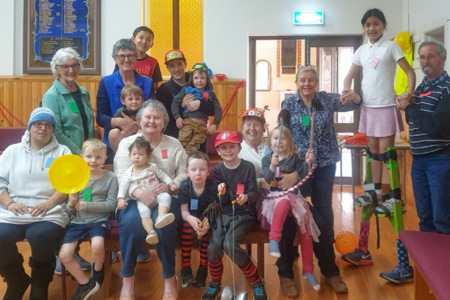Returning to church. A trauma informed approach
Trauma-Informed Practice is a strengths-based framework grounded in an understanding of and responsiveness to the impact of trauma, that emphasises physical, psychological, and emotional safety for everyone, and that creates opportunities for survivors to rebuild a sense of control and empowerment (Hopper et al., 2010).
Note – I’m not a trained psychologist, nor an expert in trauma informed care. The information below is curated from organisations and experts, and their sites referenced. At the bottom of the post are some simple resources if you want to seek personal support.
As society steps out into this brave new world, weeks after retreating to our homes, there are many questions we must ask ourselves. As churches re-open doors, there are risks and opportunities filling the pews. As a youth pastor and a parent, I’m particularly investing in the experiences of young people who will again seek physical connections in our communities and programs.
Trauma affects us all, directly or indirectly. Many people live with the ongoing effects of past and present overwhelming stress (trauma). Despite the large numbers of people affected, many of us often don’t think of the possibility that someone we meet, speak with or support may have experienced trauma. This makes us less likely to recognise it. Keeping the possibility of trauma on our radar means keeping the sensitivities and vulnerabilities of people who may be trauma survivors in mind. It means being respectful, acknowledging and understanding. Blue Knot Foundation
I was particularly taken by the example offered by Raft Psychology, considering how children might experience the return to school:
Over the past few weeks we’ve had to teach them that the outside world is dangerous and that staying home is a must. Soon we will renege on that claim and force them back into the world we just told them was unsafe. It’s going to a tricky transition for them. Second, once they are at school they’ll discover it isn’t exactly the same experience that they knew before COVID19. There will likely be many differences whether it be the initial lack of other year levels, or the additional safety procedures the school is implementing. This lack of congruity is likely to be uncomfortable. For children the ‘not quite the sameness’ and anticipatory anxiety will only be compounded by their innate desire to be near their caregivers and places of security when they feel distressed.
The article goes on to identify potential behaviours and suggest helpful strategies in navigating this changing routine. I’;d suggest the same applies to when churches and youth ministries re-open. It’s entirely likely that for some young people, the return to youth ministry programs and gatherings won’t be the exhilarating experience we anticipate and long for.
Too many words? Watch this:
Finally, a few helpful sites who have considered how a trauma informed approach to ministry can shape our practice.
Four focus areas for creating a trauma informed children’s ministry
Trauma Informed Youth Ministry
Becoming `trauma-informed’ does not require clinical training or specialist skills. It requires basic knowledge only. When put into practice, this knowledge reduces the likelihood of stressful interactions and helps reduce the effects of prior traumas. Relating to one another in a trauma-informed way ‘does no harm’ and focusses on the way in which we treat one another as human beings.
If you have experienced trauma, and want help…
Talk to someone you can trust and let them know you’re struggling. This is a vital first step in alleviating the burden. You might also find it helpful to speak with your GP, as they can help organise appropriate support.
The following organisations can provide trained support:





